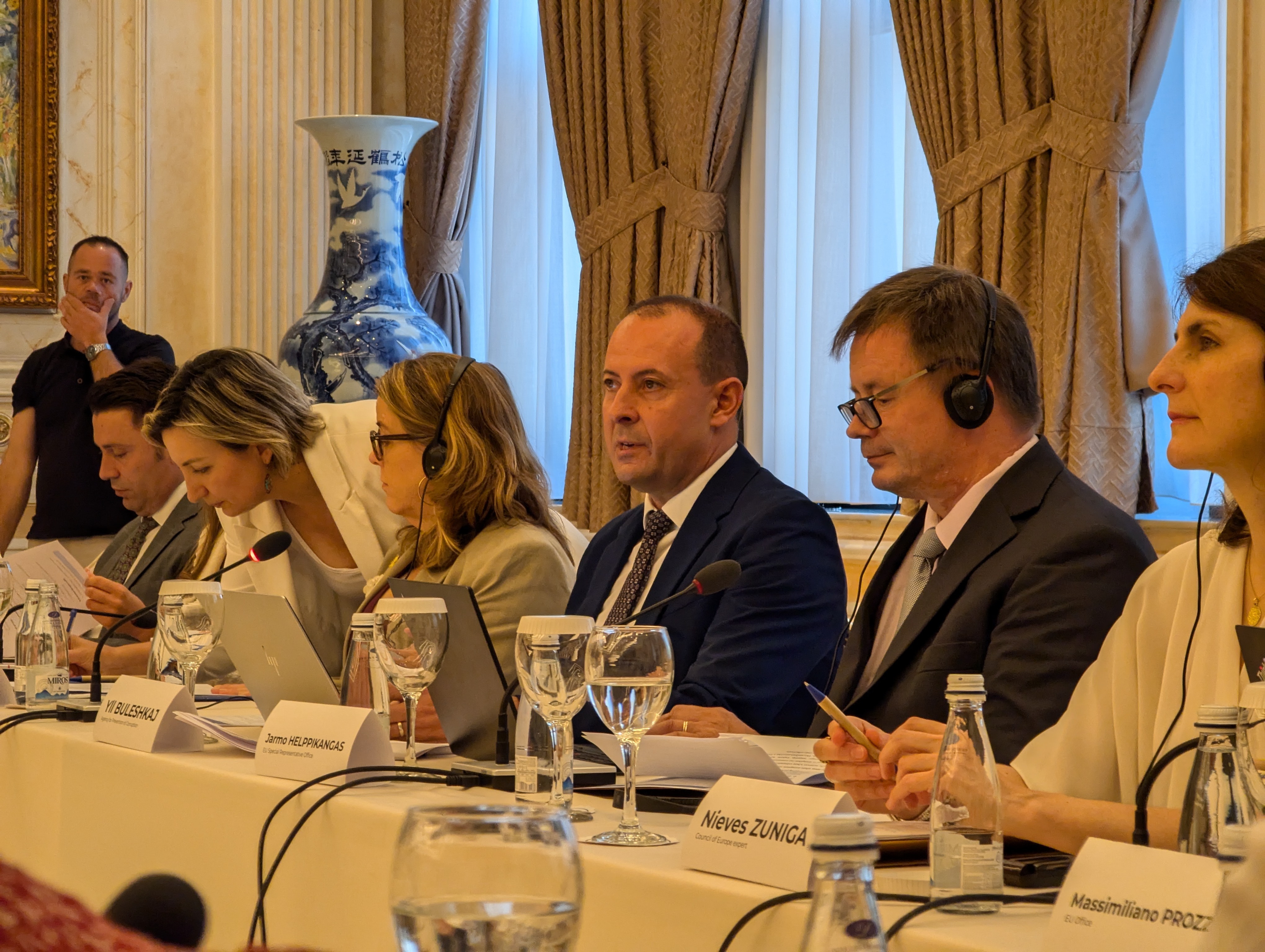The Council of Europe through its joint European Union and Council of Europe Project against Economic Crime (PECK III) organised a high-level Roundtable: Presentation of the findings from the Corruption Risk Mapping process’ with the aim of presenting findings of the Corruption Mapping Process carried out based on the Council of Europe Methodology.
The event gathered 61 participants representing Assembly, line ministries, public institutions, socially owned enterprises and EU Office in Pristina.
The Minister of Justice addressed the event by reiterating several reforms in the rule of law and fight against corruption and acknowledged the valuable support provided by the Council of Europe, whereas the Chair of the Assembly Committee on Legislation, Mandates, Immunities, Rules of procedure of the Assembly and Oversight of the Anti-Corruption Agency highlighted the added value of the Council of Europe in providing technical support based on consolidated methodologies. Acknowledging the close partnership with the APC in carrying out this process the representative of EU emphasised the role of solid partnerships between public institutions, civil society organizations, and international organisations in sharing best practices, leverage expertise, and coordinate responses to the corruption challenges.
Corruption Risk mapping was conducted by the Agency for Prevention of Corruption (APC) with the support and in close cooperation with the project. In this respect the project organised a series of activities and provided guidance to the APC in the period between October 2023 and June 2024.
Corruption risk mapping is a process which serves to identify and assess sectors, activities and/or functions with likely higher risk of corruption at national level. It is a unique effort as it provides an assessment of corruption risks based on real and factual data. Meanwhile, findings of this activity will serve authorities to have a clear picture of high-risk sectors, whereas the APC will be able to focus its capacities for in-depth risk assessment of identified (priority) sectors.
Moreover, it is for the first time that this kind of assessment is conducted by the Agency for Prevention of Corruption. For this purpose, the event also served as a venue for sharing lessons and experience with representatives of State Minister for Public Administration and Anti-Corruption and General Directorate of Anticorruption in Albania.
Participants from acknowledged the positive impact of the Council of Europe Support in addressing legal and institutional framework related to corruption risks.
This initiative builds upon joint EU/Council of Europe and beneficiaries’ efforts in identifying challenges faced and improvement needs with regard to countering corruption by also taking into account the Anti-Corruption Assessment of 2018.
The activity was organised within the framework of the “Project against Economic Crime” (PECK III), jointly funded by the European Union and the Council of Europe and implemented by the latter.






